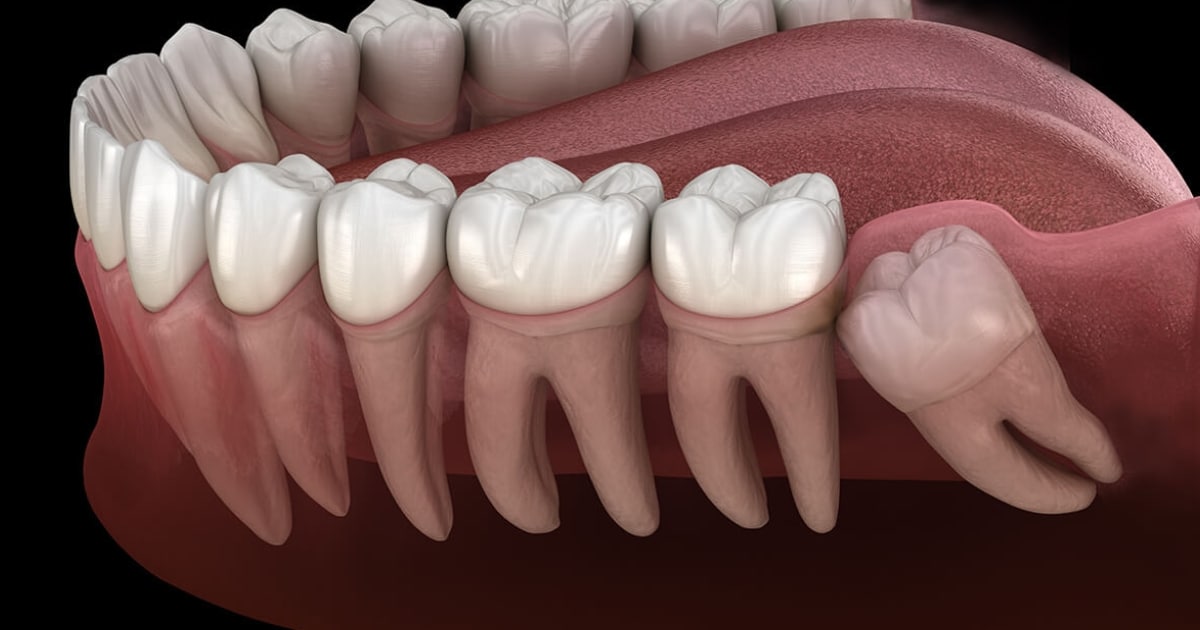Scientifically referred to as third molars, wisdom teeth represent the final set of molars that develop at the rear of the mouth. They typically emerge between the ages of 17 and 25, coinciding with what’s often humorously called the “age of wisdom.” These teeth can play a functional role when healthy. However, they more often than not present challenges, causing discomfort, infections, and various oral health issues. Dentists commonly perform wisdom tooth extraction or wisdom teeth removal to address these complications.
This blog aims to delve deeper into the essential aspects of wisdom tooth extraction, with a particular emphasis on the Oak Park region. We’ll explore the significance of this procedure, highlighting the importance of wisdom tooth extraction and considering the available options for those seeking wisdom tooth extraction in Oak Park. Understanding this process is crucial for anyone experiencing issues with their wisdom teeth, as it can significantly impact oral health and overall well-being.
1. Understanding Wisdom Teeth
Before delving into the removal procedure, it’s essential to understand the nature of wisdom teeth and why they often require extraction. Wisdom teeth are relics from our evolutionary past when our ancestors’ diets consisted of coarse, hard-to-chew foods. Nowadays, our diets are softer and easier to consume, rendering wisdom teeth largely unnecessary.
Due to limited space at the back of the mouth, wisdom teeth often become impacted, meaning they cannot fully emerge from the gums. Impacted wisdom teeth can result in a range of problems, which may include:
- Pain and Discomfort: Impacted wisdom teeth can cause pain and discomfort in the back of the mouth, leading to headaches and jaw pain.
- Infection: When the wisdom teeth partially erupt, they create pockets that trap food debris and bacteria, increasing the risk of infection and gum disease.
- Tooth Decay: Partially erupted wisdom teeth are challenging to clean properly, making them susceptible to tooth decay.
- Crowding: Wisdom teeth can cause overcrowding of adjacent teeth, potentially affecting your bite and alignment.
2. The Wisdom Tooth Extraction Procedure
Wisdom tooth extraction is a routine dental procedure by oral surgeons or dentists. Let’s outline what patients should understand about the procedure:
- Evaluation: Your dentist or oral surgeon will evaluate your wisdom teeth through X-rays and a clinical examination to determine their position and whether they need removal.
- Anesthesia: The procedure is typically performed under local anesthesia to numb the area, ensuring you won’t feel pain during the extraction. Patients may sometimes receive general anesthesia if dentists remove multiple wisdom teeth.
- Extraction: The dentist or oral surgeon will incision the gum tissue to access the wisdom tooth. If the tooth is fully visible, dentists can extract it relatively easily. However, if the tooth is impacted, it may need to be divided into smaller pieces for removal.
- Closure: After removal, the surgical site is cleaned, and sutures may be used to close the incision. A gauze is placed to help control bleeding and promote clot formation.
- Recovery: You will be given post-operative care instructions, including guidelines on managing swelling, pain, and eating soft foods. Full recovery typically takes a few days to a week.
3. Benefits of Wisdom Tooth Extraction
Wisdom tooth extraction offers several benefits, including:
- Pain Relief: Removing problematic wisdom teeth can alleviate chronic pain and discomfort.
- Preventing Infections: Extraction reduces the risk of infections and gum disease associated with impacted wisdom teeth.
- Oral Health: Wisdom tooth extraction helps maintain oral health by preventing tooth decay and overcrowding.
- Orthodontic Benefits: Removing wisdom teeth can prevent potential shifts in your dental alignment.
4. Wisdom Tooth Extraction in Oak Park
If you’re in Oak Park and need wisdom tooth extractions, you have access to experienced oral surgeons and dentists who specialize in this procedure. Oak Park offers a range of dental professionals who can assess your situation and provide personalized care.
Wisdom teeth removal is a common and essential dental procedure designed to address. The issues associated with the emergence of third molars. If you’re experiencing pain, discomfort, or other problems related to your wisdom teeth, consult a dentist in Oak Park or the surrounding areas. They can assess your situation, provide guidance, and perform the required extraction. Wisdom tooth extraction can improve oral health, pain relief, and a brighter smile. Don’t hesitate to seek professional dental care to ensure your well-being and comfort.


